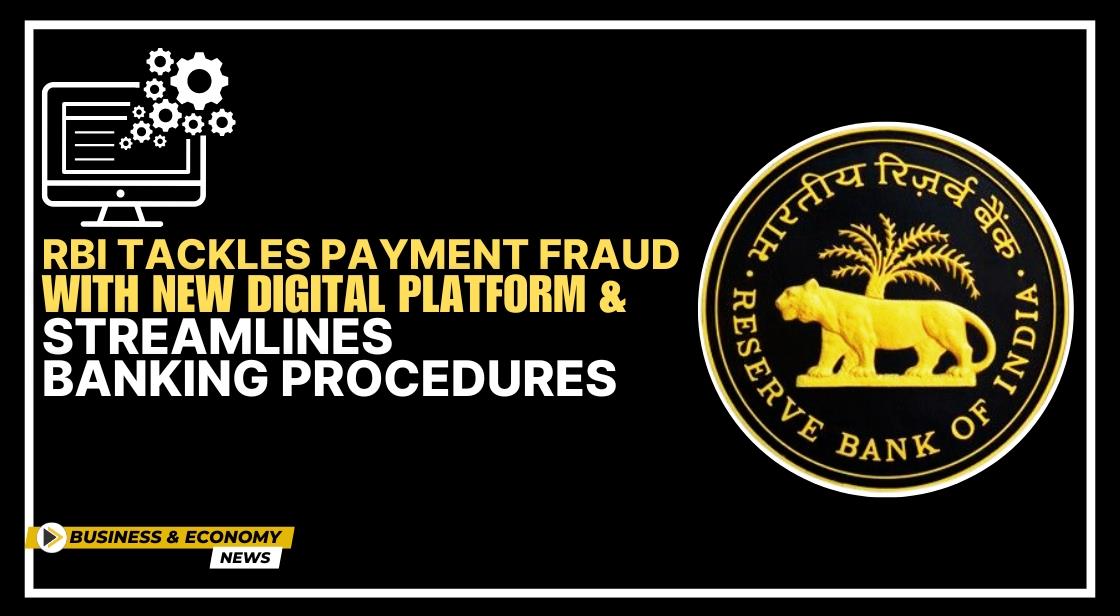RBI Tackles Payment Fraud with New Digital Platform and Streamlines Banking Procedures

News Synopsis
The Reserve Bank of India (RBI) is taking a proactive stance against the growing threat of digital payment fraud. A proposed "Digital Payments Intelligence Platform" aims to leverage advanced technologies to identify and mitigate fraud risks within the Indian financial system.
Examining a Tech-Driven Solution:
To propel this initiative forward, the RBI has assembled a committee led by A.P. Hota, former MD & CEO of NPCI. This committee will delve into the various aspects of establishing a robust digital public infrastructure for the platform. Their recommendations are expected within two months.
Alarming Rise in Payment Fraud:
The urgency of this initiative is underscored by the significant increase in digital payment fraud. According to RBI data, domestic payment frauds surged by a staggering 70.64% during the six-month period ending March 2024, reaching a value of Rs 2,604 crore. This represents a sharp rise from Rs 1,526 crore reported in the same period of the previous year. The number of fraudulent transactions also witnessed a concerning rise, jumping from 11.5 lakh to 15.51 lakh during the same period.
Industry Experts Applaud the Move:
Industry leaders like SBI Chairman Dinesh Khara have lauded the RBI's proposed regulatory measures. He emphasized that the "Digital Payments Intelligence Platform" will utilize advanced technologies to significantly mitigate fraud risks, enhancing the security and trust within the digital payments ecosystem.
Beyond Fraud Mitigation: Additional RBI Announcements
In addition to the proposed platform, the Reserve Bank of India RBI has announced other key decisions:
Increased Bulk Deposit Limit:
The RBI proposes to revise the definition of "bulk deposits" for commercial banks (excluding RRBs) and small finance banks. The new limit would be set at Rs 3 crore (single rupee term deposits) and above, compared to the existing limit of Rs 2 crore. Local area banks would also see a revised limit of Rs 1 crore and above for single rupee term deposits. This revision aims to provide banks with greater operational flexibility in managing their asset-liability profiles.
Automatic E-mandate Replenishment:
The RBI is introducing an automatic replenishment facility for recurring transactions within the e-mandate framework. This feature will be triggered when the balance in Fastag or NCMC falls below a pre-set customer threshold. This eliminates the need for pre-debit notifications for automatic balance replenishment under the e-mandate framework.
UPI Lite E-mandate Integration:
UPI Lite will be integrated into the e-mandate framework. This will allow for automatic top-up of UPI Lite wallets when the balance falls below a customer-defined threshold. Since funds remain within the customer's account during this process, additional authentication or pre-debit notification requirements are not deemed necessary.
Streamlined Export-Import Norms:
The RBI plans to rationalize existing guidelines for the export and import of goods and services. This move aims to align regulations with the evolving dynamics of global cross-border trade and simplify operational procedures for stakeholders, ultimately promoting ease of doing business.
You May Like









